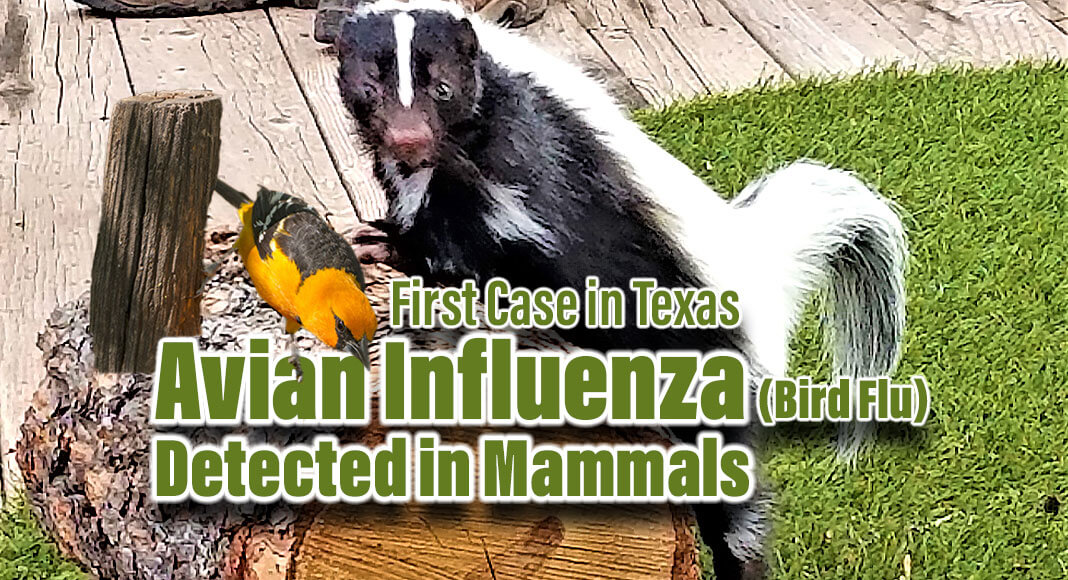
Mega Doctor News
AUSTIN, Texas – The National Veterinary Services Laboratories (NVSL) confirmed this week the presence of Highly Pathogenic Avian Influenza (HPAI) in a striped skunk recovered from Carson County.
This is the first confirmed case of HPAI in mammals for Texas.
Detected in all states across the U.S. except Hawaii, HPAI is a highly contagious virus that transmits easily among wild and domestic birds. The virus can spread directly between animals and indirectly through environmental contamination.
For mammals, current data shows transmission occurs primarily through the consumption of infected animal carcasses, though mammal-to-mammal transmission does not appear sustainable.
Other mammal species susceptible to HPAI include foxes, raccoons, bobcats, opossums, mountain lions and black bears. Symptoms can include ataxia (incoordination, stumbling), tremors, seizures, lack of fear of people, lethargy, coughing and sneezing, or sudden death.
Because of the ease of transmission, TPWD recommends that wildlife rehabilitators also remain cautious when intaking wild animals with clinical signs consistent with HPAI and consider quarantining animals to limit the potential for HPAI exposures to other animals within the facility.
Currently, the transmission risk of avian influenza from infected birds to people remains low, but the public should take basic protective measures (i.e., wearing gloves, face masks and handwashing) if contact with wild animals cannot be avoided.
Those who locate wild animals with signs consistent with HPAI should immediately contact their local TPWD wildlife biologist.










